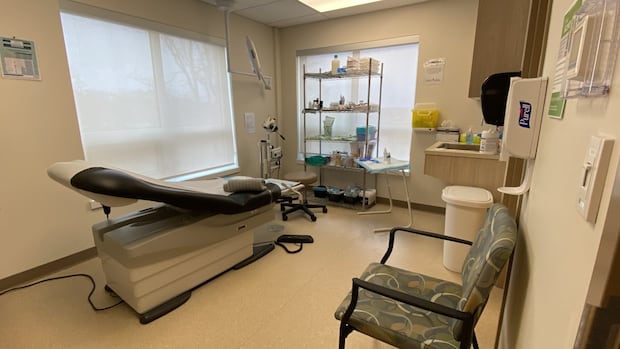Early Menopause & Mental Health: Why Aussie Women Need Screening

Aussie women experiencing early menopause, also known as premature ovarian insufficiency (POI), face a significantly increased risk of depression and anxiety. Groundbreaking new research highlights the urgent need for proactive mental health screening as part of POI care. This isn't just about physical changes; it's about the emotional and psychological toll this condition takes.
What is Premature Ovarian Insufficiency (POI)?
POI occurs when a woman's ovaries stop functioning normally before the age of 40. This can lead to irregular or absent periods, declining fertility, and a range of physical symptoms like hot flashes and vaginal dryness. However, the mental health impact is often overlooked. While the physical symptoms are well-documented, the emotional and psychological consequences can be devastating.
The Research Findings: A Concerning Link
The recent study, published in [Insert Journal Name - *replace with actual journal*], followed a large cohort of women with POI. The results revealed a stark correlation between POI and a higher prevalence of depression and anxiety disorders. Researchers found that women with POI were [Insert Specific Statistic - *e.g., twice as likely*] to experience depressive symptoms compared to women of the same age without the condition. The study also explored potential contributing factors, including hormonal fluctuations, loss of fertility, and societal pressures related to aging and womanhood.
Why Mental Health Screening is Crucial
Traditionally, POI care has focused primarily on managing the physical symptoms and exploring fertility options. However, this new research underscores the critical need to integrate mental health screening into routine care. Early identification of mental health concerns allows for timely intervention and support, significantly improving a woman's quality of life.
What Does Screening Look Like?
Mental health screening for women with POI could involve:
- Questionnaires: Standardised questionnaires to assess depression and anxiety symptoms.
- Open Discussions: Healthcare providers should proactively inquire about emotional well-being and offer a safe space for women to express their concerns.
- Referrals: Referral to mental health professionals, such as psychologists or psychiatrists, for comprehensive assessment and treatment.
Beyond Screening: Holistic Support
While screening is a vital first step, a holistic approach to care is essential. This includes:
- Hormone Replacement Therapy (HRT): Managing physical symptoms can indirectly improve mood and mental well-being.
- Lifestyle Modifications: Promoting healthy diet, regular exercise, and adequate sleep.
- Support Groups: Connecting with other women experiencing POI can provide a sense of community and reduce feelings of isolation.
- Mindfulness and Relaxation Techniques: Practices like yoga and meditation can help manage stress and anxiety.
The Takeaway for Aussie Women
If you're experiencing early menopause or have been diagnosed with POI, it's crucial to advocate for your mental health. Talk to your doctor about screening options and explore resources available to support your emotional well-being. Remember, you're not alone, and help is available.
Resources:
- Beyond Blue: https://www.beyondblue.org.au/
- SANE Australia: https://www.sane.org.au/
- Jean Hailes for Women's Health: https://www.jeanhailes.org.au/






